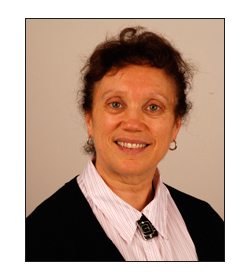The Patient Involvement Group
Our vision is to build a strong, purposeful engagement partnership between the School of Nursing and health partners in order to improve patient and consumer health care. We do this by providing a forum where university staff and industry partners connect, collaborate in research and showcase innovations to improve patient and consumer experiences and outcomes.
The program of research includes partnering with health care consumers and partners to improve health care. We generate solutions to re-able consumers of health care and identify research opportunities that benefit the community
Expertise
- Patient/consumer involvement
- Evaluation techniques
Projects
- Co-led redesign of Stroke Services in the North-West. Funded by the Royal Hobart Hospital Foundation;
- Structured evaluation of the Regional Integrated Diabetes Education program in partnership with Tasmanian healthcare partners;
- Evaluation of a Gestational Diabetes Mellitus program delivered in Northern Tasmania; and
- Health and Community Care Reablement Program which involves a training program and evaluation strategy
Group Leader(s)
Affiliation
School of Nursing
Contact
Contact: Research.Nursing@utas.edu.au
Dr. Carey Mather, Senior Lecturer
Group members
- Getahun Beyera (F/T PhD student)
- Danielle Bywaters (P/T PhD student)
- Gill Course (Lecturer, Nursing)
- Dr. Carey Mather
- Erin McLeod (THS)
- Andrea Miller (Lecturer, Nursing, P/T Doctoral student)
- Dr. Claire Morley (THS)
- Linda Nichols (Lecturer, Nursing, P/T PhD student)
- Joy Pertile (Lecturer, Nursing)
- Dr.Sarah Prior (SoM)
- Lynne Staff (Lecturer, Midwifery, P/T PhD student)
- Kerrie Walkem (Lecturer, Nursing, P/T PhD student)
- Sarah Young (F/T PhD student)
- Mark Zasadny (Lecturer, Nursing)
Additional Information
Sample publications:
Campbell S, Greenwood M, Prior S, Shearer T, Walkem K, Young S, Bywaters D, and Walker K, 2020. Purposive sampling: Complex or simple? Research case examples. Journal of Research in Nursing, Accepted for publication.
Beyera, G.K., O'Brien, J. and Campbell, S., 2020. Hospital admission and associated factors among individuals presenting to healthcare facilities for low back pain in Ethiopia. International Journal of Rheumatic Diseases.
Beyera, G.K., O’Brien, J. and Campbell, S., 2020. The development and validation of a measurement instrument to investigate determinants of health care utilisation for low back pain in Ethiopia. PloS one, 15(1), p.e0227801.
Prior, S.J., Reeves, N.S. and Campbell, S.J., 2020. Challenges of delivering evidence‐based stroke services for rural areas in Australia. Australian Journal of Rural Health, 28(1), pp.15-21.
Prior, S., Miller, A., Campbell, S., Linegar, K. and Peterson, G., 2020. The Challenges of Including Patients With Aphasia in Qualitative Research for Health Service Redesign: Qualitative Interview Study. Journal of Participatory Medicine, 12(1), p.e12336.
Campbell, S and Bramble, M and Marlow, A and Maxwell, H and Prior, S and Heath, A and Reeves, N, 2019. Reablement implementation and evaluation at Family Based Care: Final Report, University of Tasmania, and Family Based Care Association North West Inc., Australia [Government or Industry Research]
Prior, S.J., Mather, C., Miller, A. and Campbell, S., 2019. An academic perspective of participation in healthcare redesign. Health research policy and systems, 17(1), pp.1-6.
Prior, S., Reeves, N., Peterson, G., Jaffray, L. and Campbell, S., 2019, March. Addressing the Gaps in Post-Stroke Sexual Activity Rehabilitation: Patient Perspectives. In Healthcare (Vol. 7, No. 1, p. 25). Multidisciplinary Digital Publishing Institute.
Goodridge, D., Henry, C., Watson, E., McDonald, M., New, L., Harrison, E.L., Scharf, M., Penz, E., Campbell, S. and Rotter, T., 2018. Structured approaches to promote patient and family engagement in treatment in acute care hospital settings: protocol for a systematic scoping review. Systematic reviews, 7(1), p.35.
Ford, K., Dickinson, A., Water, T., Campbell, S., Bray, L. and Carter, B., 2018. Child centred care: challenging assumptions and repositioning children and young people. Journal of pediatric nursing, 43, pp.e39-e43.
Bramble, M., Campbell, S., Maxwell, H., Marlow, A., Heath, A. and Prior, S., 2018. Building Capacity to Deliver Reablement in Regional Communities: What are the Benefits and Challenges.

